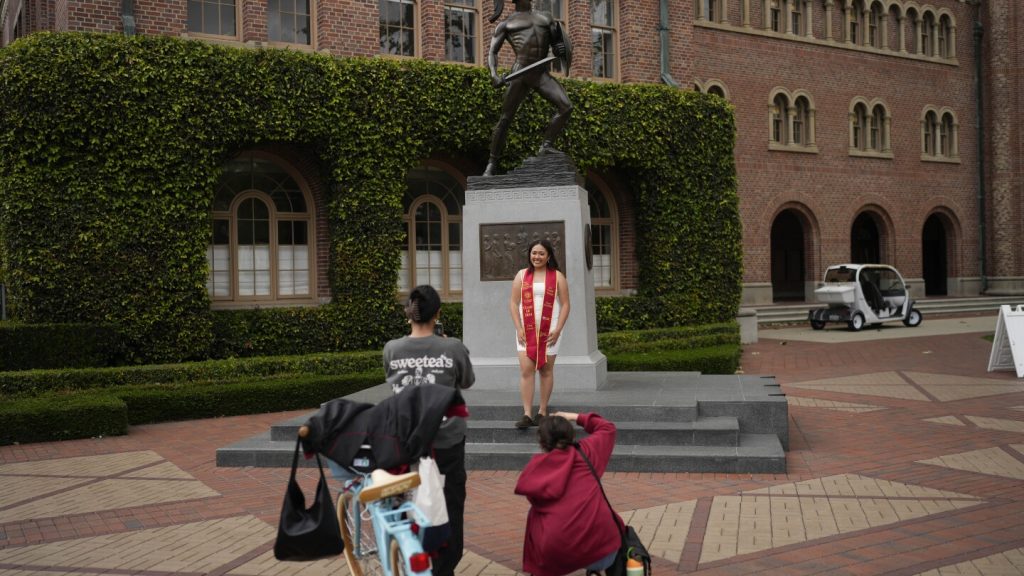The University of Southern California’s decision to cancel its main graduation ceremony has left students and alumni stunned, as protests over the Israel-Hamas war continue to spread on campuses nationwide. The controversy began when administrators said the student valedictorian, who had expressed support for Palestinians, would not be allowed to speak due to security concerns. This decision sparked protests on the Los Angeles campus, calling for divestment from companies doing business with Israel or supporting its military actions. The protests led to the cancellation of the main graduation event, citing new safety measures and the inability to process tens of thousands of guests.
The cancellation of the main graduation ceremony has generated mixed reactions among students and alumni. While some, like Taylor Contarino, a senior graduating with a journalism degree, feel disheartened by the university’s decision, others, like Olivia Lee, a graduate of the business administration program, support the protesters’ call for divestment from businesses supporting Israel. Lee believes that students have a right to know where their tuition money is invested and supports the push for transparency in university investments. Meanwhile, Joshua Adams, an alum planning to return to USC for his master’s degree anniversary celebration, voiced disappointment in the university’s recent decisions limiting free speech and hoped alumni voices would influence administrators.
The protests over the Israel-Hamas conflict have posed a challenging test for colleges across the country, forcing administrators to navigate the balance between free speech and campus safety concerns. The USC controversy began when the valedictorian supporting Palestinians was prohibited from giving a commencement speech, leading to the cancellation of filmmaker Jon M. Chu’s keynote speech and the removal of honorary degrees. The ensuing protests focused on urging the university to divest from companies aiding Israel’s military actions, culminating in the arrest of 90 demonstrators.
The decision to cancel the main graduation event left a sense of disappointment and unease among students and alumni at USC, with some expressing concern over the curtailment of free speech and others supporting the call for divestment from businesses supporting Israel. The university cited safety concerns and logistical challenges as reasons for canceling the large event, planning to provide alternative activities to mark the occasion. The move reflects the ongoing tensions and divisions on college campuses nationwide as the Israel-Hamas conflict continues to spark protests and debates.
The cancellation of the main graduation ceremony at USC has highlighted the complexities surrounding free speech, campus safety, and the Israel-Hamas conflict within the university community. While some students and alumni are disappointed in the university’s decisions limiting free speech and are advocating for divestment from businesses supporting Israel, others are supportive of the measures taken to ensure safety and provide alternative celebrations. The protests and controversies at USC mirror similar challenges faced by colleges across the country as they navigate the intersection of political activism, academic freedom, and campus safety concerns in a polarized climate.


